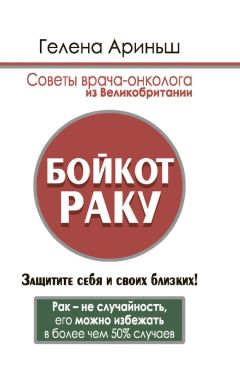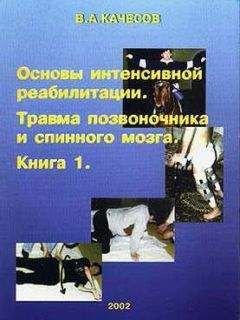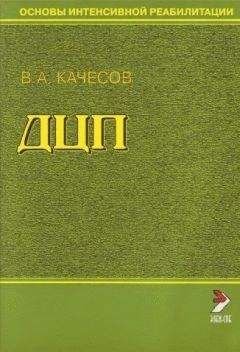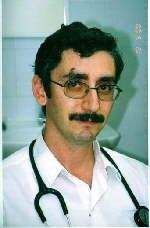7. Palomar-Lever J, Victorio-Estrada A. Factors that influence emotional disturbance in adults living in extreme poverty. Scand J Phychol 2012; 53: 158–164.
8. Kaufman J, Charney DS. Nerobiological correlates of child abuse. Biol Psychiatry 1999, 45: 1235–1236.
9. Kaufman J, Plotsky PM, Nemeroff CB, Charney DS. Effects of early adverse experiences on brain structure and function: clinical implications. Biol Psychiatry 2000; 48: 778–790.
10. Vermetten E, Schmahl C, Lindner S, Loewenstein RJ, Bremner JD. Hippocampal and amygdalar volumes in dissociative identity disorder. Am J Psychiatry 2006; 163: 630–636.
11. Sterling PaE. Allostasis: a new paradigm to explain arousal pathology. In Handbook of Life Stress, Cognition and Health. Edited by Fisher SRJ. New York: John Wiley&Sons, 1998.
12. VcEwen BS. Protective and damaging effects of stress mediators. N Engl J Med 1998; 338: 171–179.
13. Segerstrom SC, Miller GE. Psychological stress and the human immune system: a meta-analytic study of 30 years of inquiry. Psychol Bull 2004; 130: 601–630.
14. Adams JM, White M. Biological ageing: a fundamental biological link between soco-economic status and health? Eur J Public Health 2004; 14: 331–334.
15. Geronimus AT, Hicken M, Keene D, Bound J. “Weathering” and age patterns of allostatic load scores among blacks and whites in the United States. Am J Public Health 2006; 96: 826–833.
16. Pearlin LI. The sociological study of stress. J Health Soc Behav 1989; 30: 241–256.
17. Steel Z, Chey T, Silove D, Marnane C, Bryant RA, van Ommeren M. Association of torture and other potentially traumatic events with mental health outcomes among populations exposed to mass conflict and displacement: a systematic review and meta-analysis. JAMA 2009; 302: 537–549.
18. Jacklyn Quinlan, Mai Thanh Tu, Etienne V Langlois, Mohit Kapoor, Daniela Zieglar, Hassan Fahmi, Maria Victoria Zunzunegui. Protocol for a systematic review of the association between chronic stress during the life course and telomere length. Systematic Reviews 2014; 3: 40.
19. Shalev I, Entringer S, Wadhwa PD, Wolkowitz OM, Puterman E, Lin J, Epel ES. Stress and telomere biology: a lifespan perspective. Psychoneuroendocrinology 2013; 38: 1835–1842.
20. Surtees PG, Wainwright NW, Pooley KA, Luben RN, Khaw KT, Easton DF, Dunning AM. Life stress, emotional health, and mean telomere length in the European Prospective Investigation into Cancer (EPIC)-Norfolk population study. J Gerontol A Biol Sci Med 2011; 66: 1152–1162.
21. Frenck RW, Blackburn EH, Shannon KM. The rate of telomere sequence loss in human leukocytes varies with age. Proc Natl Acad Sci USA 1998; 95: 5607–5610.
22. Aubert G, Lansdorp PM. Telomeres and aging. Physiol Rev 2008; 88: 557–559.
23. Armanios M, Blackburn EH. The telomere syndromes. Nat Rev Genet 2012; 13: 693–704.
24. Chin L, Artandi SE, Shen Q, et al. p53 deficiency rescues the adverse effects of telomere loss and cooperates witj telomere dysfunction to accelerate carcinogenesis. Cell 1999, 97: 527–538.
25. Lin J, Epel E, Blackburn E. Telomeres and life style factors: roles in cellular aging. Mutat Res 2012; 730: 85–89.
26. Blackburn EH, Epel ES. Telomeres and adversity: too toxic to ignore. Nature 2012; 490: 169–171.
27. Wang L, Liao WC, Tsai CJ, Wang LR, Mao IF, Chen CC, Kao PF, Yao CC. The effects of perceived stress and life style leading to breast cancer. Women Health 2013, 53(1): 20–40.
28. Hassan S, Karpova Y, Baiz D, Yancey D, Pullikuth A, flores A, Register T, Cline JM, D`agostino R Jr, denial N, Datta SR, Kulik G. Behavioral stress accelerates prostate cancer development in mice. J Clin Invest 2013; 123(2): 874–86.
29. Payne JK. State of the science: tress, inflammation and cancer. Oncol Nurs Forum 2014; 41(5): 533–40.
30. Thomas C, Bhatia S. Cancer: brain-regulated biphasic stress response induces cell growth or cell death to adapt to psychological stressors. Adv Mind Body Med 2014; 28(3): 14–21.
31. Kennedy B, Valdimarsdpttir U, Sundstrom K, Sparen P, Lambe M, Fall K, Fang F. Loss of a parent and the risk of cancer in early life: a nationwide cohort study. Cancer Causes Control 2014; 25(4): 499–506.
32. Dhabhar FS. Effects of stress on immune function: the good, the bad, and the beautiful. Immunol Res 2014; 58(2): 193–210.
33. Himmerich H, Fischer J, Bauer K, Kirkby KC, Sack U, Krugel U. Stress-induced cytokine changes in rats. Eur Cytokine Netw 2013; 24(2): 97–103.
34. Sinnia S, De`Ambrosis B. Stress and melanoma: increasing the evidence towards a causal basis. Arch Dermatol Res 2013; 305(9): 851–6.
35. Lisa M Jaremka, Christopher P Fagundes, Juan Peng, Jeanette M Bennett, Ronald Glaser, William B Malarkey, Janice K Kiecolt-Glaser. Loneliness promotes inflammation during acute stress. Psychol Sci 2013; 24(7); doi 10.1177/0956797612464059.
36. Benjamin P Chapman, Kelvin Fiscella, Ichiro Kawachi, Paul Duberstein, Peter Muennig. Emotion suppression and mortality risk over 12-year follow-up. J Psycosom Res 2013; 75(4): 381–385.
37. Mund M, Mitte K. The costs of repression: a meta-analysis on the relation between repressive coping and somatic diseases. Health Psychol 201110.1037/a0026257.
38. Consedine NS, Magai C, Bonanno GA. Moderators of the emotion-inhibition-health relationship: a review and research agenda. Review of General Psychology 2002; 6(2): 204–28.
39. Cramer P. Stress, autonomic nervous system reactivity, and defense mechanisms. In: Hentchel, U; Clinical Perspectives. Elsevier 2004; p 325–50.
40. Giese-Davis J, DiMiceli S, Sephton SE, Spiegel D. Emotional epression and diurnal cortisol slope in women with metastatic breast cancer in supportive-expressive group therapy. Biol Psychol 2006; 73(2): 190–8.
41. Giese-Davis JSS, Abercrombie HC, Duran REF, Spiegel D. Repression and high anxiety are associated with aberrant diurnal cortiol rhythms in women with metastatic breast cancer. Health Psychology 2004; 23(6): 645–50.
42. Hentschel U, Smith G, Draguns JG. Defence mechanisms: theoretical, research, and clinical perspectives. Amsterdam: Elsevier 2004. Defense mechanisms and their psychophysiological correlates.
43. Singer JL, editor. Repression and dissociation: implications for personality theory, psychopathology, and health. Chicago, IL: University of Chicago Press; 1995.
44. Korte SM, Koolhaas JM, Wingfield JC, McEwen BS. The Darwinian concept of stress; benefits of allostasis and costs of allostatic load and the trade-offs in health and disease. Neurosci Biobehav Rev 2005; 29(1): 3–38.
45. Grossarth-Maticek R, Bastiaans J, Kanazir DT. Psychosocial factors as strong predictors of mortality from cancer, ischaemic heart disease and stroke: the Yugoslav prospective study. J Psychosom Res 1985; 29(2): 167–76.
46. Grossarth-Maticek R. Psychosocial predictors of cancer and internal diseases. An overview. Psychother Psychosom 1980; 33(3): 122–8.
47. Fox BH, Temoshok L, Dreher H. Mind-body and behavior in cancer incidence. Advances 1988; 5(4): 41–6.
48. Butow PN, Hiller JE, Price MA, Thackway SV, Kricker A, Tennant CC. Epidemiological evidence for a relationship between life events, coping stylt, and personality factors in the development of breast cancer. J Psychosom Res 2000; 49(3): 169–81.
49. MvKenna MC, Zevon MA, Corn B, Rounds J. Psychosocial factors and the development of breast cancer: a meta-analysis. Health Psychol 1999; 18(5): 520–31.
50. Harburg E, Julius M, Kaciroti N, Gleiberman L, Schork MA. Expressive/suppressive anger-coping responses, gender, and types of mortality: a 17-year follow-up. Psychosom Med 2003; 65(4): 588–97.
51. Denollet J, Gidron Y, Vrints CJ, Conraads VM. Anger, suppressed anger, and risk of adverse events in patients with coronary artery disease. Am J Cardiol 2010; 105(11): 1555–60.
52. Sturmer T, Hasselbach P, Amelang M. Personality, lifestyle, and risk of cardiovascular disease and cancer: follow-up of population based cohort. BMJ 2006; 332(7554): 1359.
53. Pauwels EK, Volterrani D, Mariani G, Kostkiewics M. Mozart, music and medicine. Med Princ Pract 2014; 23(5): 403–12.
54. Baltrush HJ, Stangel W, Titze I. Stress, cancer and immunity. New developments in biopsychosocial and psychoneuroimmunologic research. Acta Neurol (Napoli) 1991; 13(4): 315–27.
55. Tashiro M, Itoh M, Kubota K, Kumano H, Masud MM, Moser E, Arai H, Sasaki H. Relationship between trait anxiety, brain activity and natural killer cell activity in cancer patients: a preliminary PET study. Psychooncology 2001; 10(6): 541–6.
56. House JS, Landis KR, Umberson D. Social relationship and health. Science 1988; 241: 540–5.
57. Reynolds P, Kaplan GA. Social connections and risk for cancer: prospective evidence from the Alameda county study. Behav Med 1990; 16: 101–10.
58. Phillips DP, Van Voorhees CA, Ruth TE. The birthday: lifeline or deadline? Psychosom Med 1992; 54: 532–42.
59. Phillips DP, Ruth TE, Wagner LM. Psychology and survival. Lancet 1993; 342: 1142–5.
60. Penninx BW. Chronically depressed mood and cancer risk in older persons. Journal of the National Cancer Institute 1998; 90: 1888–93.
61. Giese-Davis J, Collie K, Rancourt KM, et al. Decrease in depression symptoms is associated with longer survival in patients with metastatic breast cancer: a secondary analysis. J Clin Oncology 2011; 29: 413–20.
62. Spiegel D, Bloom JR, Yalom I. Group support for patients with metatatic cancer. A randomized outcome study. Arch Gen Psychiatry 1981; 38: 527–533.
63. Spiegel D, Bloom JR. Group therapy and hypnosis reduce metastatic breast carcinoma pain. Psychosom Med 1983; 45: 333–9.
64. Andersen BL, Yang HC, Farrar WB, et al. Psychologic intervention improves survival for breast cancer patients: a randomized clinical trial. Cancer 2008; 113: 3450–8.
65. Andersen BL, Thornton LM, Shapiro CL, et al. Biobehavioral, immune, and health benefits following recurrence for psychological intervention participants. Clin Cancer Research 16: 3270–8.
66. Spiegel D. A 43-year-old womancoping with cancer. JAMA 1999; 282: 371–8.
67. Kiecolt-Glaser JK, Glaser R. Psychoneuroimmunology and cancer: fact or fiction? European Journal of Cancer 1999; 35: 1603–7.
68. Antonijevic IA. Depressive disorders – is it time to endorse different pathophysiologies? Psychoneuroendocrinology 2006; 31: 1–15.
69. Riley V. Mouse mammary tumors: alteration of incidence as apparent function of stress. Science 1975; 189: 465–7.
70. Riley V. Psychoneuroendocrine influences on immunocompetence and neoplasia. Science 1981; 212: 1100–9.
71. Sapolsky RM, Donnelly TM. Vulnerability to stress-induced tumor growth increases with age in rats: role of glucocorticoids. Endocrinology 1985; 117: 662–6.
72. Sapolsky R, Krey L, McEwan BS. Prolonged glucocorticoidexposure reduces hippocampal neuron number: implications for aging. J Neurosci 1985; 5: 1222–1227.
73. Jayo JM, Shively CA, Kaplan JR, et al. Effects of exercise and stress on body fat distribution in male cynomolgus monkeys. Interbational Journal of Obesity&Related Metabolic Disorders 1993; 17: 597–604.
74. Epel E, McEwen B, Seeman T, et al. Psychological stress and lack of cortisol habituation among women with abdominal fat distribution. Psychosom Med 1999; 61:107.
75. Plotsky PM, Owens MJ, Nemeroff CB. Psychoneuroendocrinology of depression. Hypothalamic-pituitary-adrenal axis. Psychiatr Clin North Am 1998; 21: 293–307.
76. Posener JA, Schildkraut JJ, Samson JA, et al. Diurnal variation of plasma cortisol and homovanillic acid in healthy subjects. Psychoneuroendocrinology 1996; 21: 33–8.
77. David Spiegel. Mind matters in cancer survival. Psychooncology 2012; 21(6): 588–593.
78. Sheridan JF, Dobbs C, Jung J, et al. Stress-induced neuroendocrine modulation of viral pathogenesis and immunity. Ann N Y Acad Sci 1998; 840: 803–8.
79. Sheridan JF. Stress-induced modulation of anti-viral immunity – Normal Cousins Memorial Lecture 1997; Brain, Behav, Immun 1998; 12: 1–6.
80. Padgett DA, Loria RM, Sheridan JF. Endocrine regulation of the immune response to influenza virus infection with a metabolite of DHEA-androstenediol. J Neuroimmunol 1997; 78: 203–11.
81. Glaser R, Kiecolt-Glaser JK. Stress associated immune modulations: relevance to viral infections and chronic fatigue syndrome. American Journal of Medicine 1998; 105: 35S–42S.





